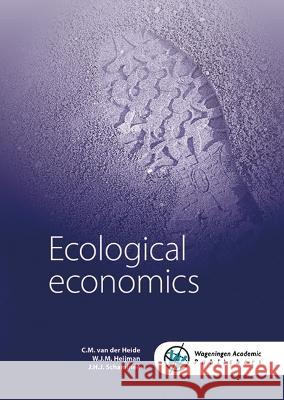Ecological economics » książka
Ecological economics
ISBN-13: 9789086863204 / Angielski / Miękka / 2018 / 260 str.
Also available as E-book seeecological-economics For more information about the e-book, please contact Sales.
A textbook about the nature of economics and the economics of nature Is economic growth the cause of or the solution for biodiversity loss? Why do we keep drilling for oil and gas when green energy sources are cheaper? And is it possible to protect nature without government intervention? The answer to these and other questions lies in economic knowledge. But in an age when the boundaries between nature and society are becoming increasingly vague, ecology and economics are still worlds apart. Not only should economists find out more about ecology, ecologists should acquire a better understanding of economic principles and concepts: from Adam Smith's invisible hand to the Gini coefficient and from diminishing marginal utility to the Hedonic Pricing method. The aim of this book is to provide students with knowledge and an understanding of economic science and to offer them a mindset for tackling the important ecological issues of our time. The book demonstrates that economic theories are sometimes part of an ecological problem but can also offer valuable insights in the search for a solution. The textbook is intended for use on ecology courses at institutes for professional education and on science courses. A strange combination at first glance but, having read this book, I am convinced of the inextricable link between ecology and economics. This book is an eye-opener not just for professional and science students but also for policymakers and land managers. My interest increased with every page and my knowledge about the interfaces and connections between two interesting disciplines grew considerably. Hans van Rooijen, Former director of Woodland and Nature Conservation course, Hogeschool Van Hall Larenstein, the Netherlands 'Old-fashioned' administrators and economists have a tendency to regard economics and ecology as counter-forces. And many nature conservationists don't think that nature should be discussed in terms of (economic) utility. In all honesty, both visions are fairly blinkered. It goes without saying that nature has a value in itself, which is why Natuurmonumenten has worked in this area for more than 110 years. But nature also has economic significance - and needn't be an obstacle to economic development. It can even be an economic multiplier. The thinking around synergies between economics and ecology must be intensified, to make the world a better place. This book can only help! - Marc van den Tweel, Chief Executive Natuurmonumenten (Dutch conservation organisation), the Netherlands











